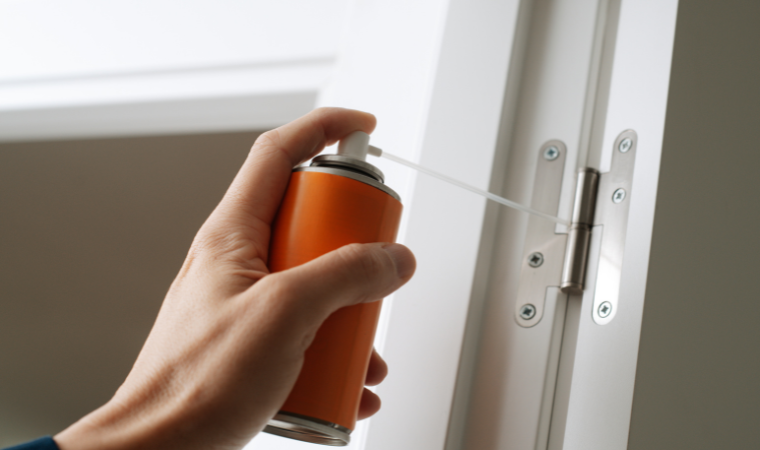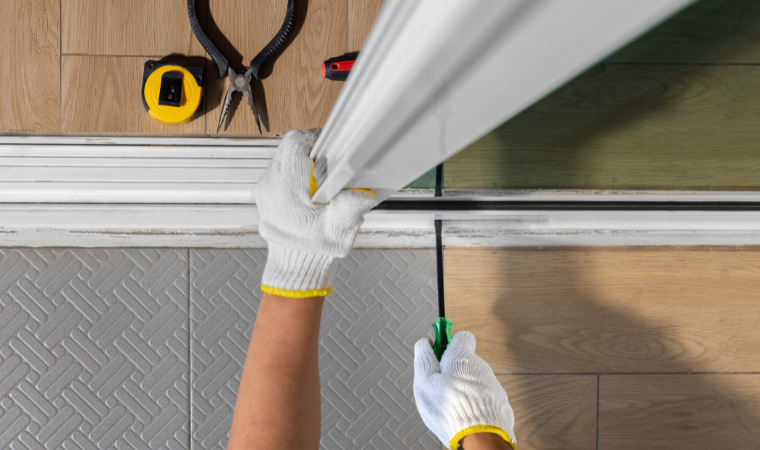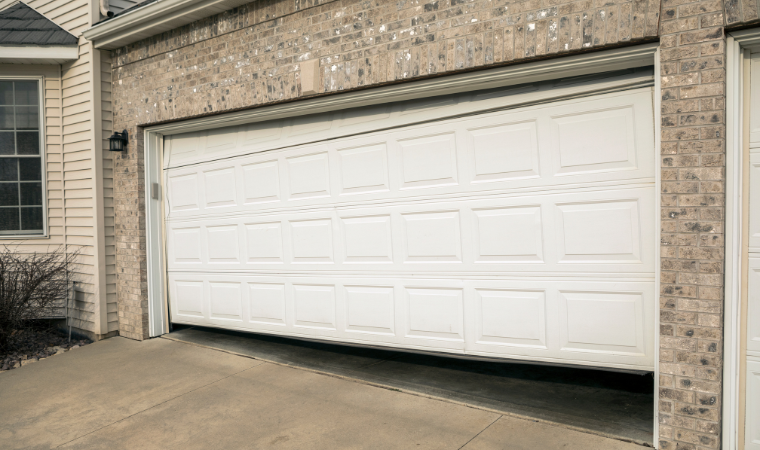A noisy garage door can disrupt your peace and signal underlying issues you shouldn’t ignore. While it’s easy to get used to the creaks and clunks over time, they can indicate wear and tear, loose components, or the need for some straightforward maintenance.
Common Causes of Noisy Garage Doors and How to Fix Them
Understanding the reasons behind the noise can help you take the right steps to fix it before it turns into a costly repair. Here are some of the most common causes of a noisy garage door, along with practical ways to quiet it down.
1. Lack of Lubrication
One of the most frequent culprits behind squeaky or screeching noises is simply dry hardware. The metal components of your garage door system—rollers, hinges, tracks, and springs—need regular lubrication to function smoothly. When these parts grind against each other without enough lubrication, they produce irritating noises and wear out faster.
What to do: Apply a silicone-based garage door lubricant to the rollers, hinges, and springs every few months. Be sure to clean off old grease and dirt first. Avoid using all-purpose sprays like WD-40, which are not designed for long-term lubrication.

2. Worn-Out Rollers
Rollers help guide your garage door along the tracks. Over time, they can become worn, cracked, or rusted, especially if they’re made of metal. Worn rollers often create a grinding, squealing, or vibrating sound during movement.
What to do: Inspect the rollers. If they appear cracked or damaged, replace them. Consider upgrading to nylon rollers, which are quieter and don’t require lubrication as often. If you’re unsure about DIY replacement, a local technician, like those at Fairway Garage Door Chicago, can handle it safely.
3. Loose Nuts, Bolts, or Screws
With daily use, the vibration of your garage door can cause the hardware to loosen. Loose components often create rattling or banging noises and can also lead to more serious damage over time.
What to do: Use a socket wrench to tighten all bolts, brackets, and screws along the door and its track. Be careful not to overtighten, as that can strip threads or damage metal parts. Regular maintenance checks can keep these issues from recurring.
4. Misaligned Tracks
Tracks that are misaligned can cause scraping, rubbing, or grinding sounds. This not only increases noise but can strain the opener and lead to uneven movement.
What to do: Check whether the door appears to be rubbing against the tracks or if there’s uneven spacing between the track and the rollers. If the track is visibly warped or loose, it’s best to call a professional. Attempting to force a misaligned track back into place can make the problem worse.

5. Worn or Broken Springs
Springs play an important role in lifting and lowering your garage door. If they become worn, stretched, or broken, they can produce a loud bang or creaking noise. A faulty spring also makes the door harder to open and can cause balance issues.
What to do: Because garage door springs are under extreme tension, do not attempt to repair or replace them yourself. Contact a trained professional to inspect and replace them if needed. Fairway Garage Door provides safe and efficient spring replacements, especially if your door has become noisier recently.
6. Noisy Garage Door Opener
Sometimes the door itself isn’t the problem—it’s the opener. Older chain-driven garage door openers tend to be noisy. Over time, the chain may also loosen, slap against the rail, or make clicking sounds.
What to do: Check the chain for slack and adjust it according to the given instructions. If your opener is several years old, it may be time to upgrade to a quieter belt-driven or screw-driven model. Modern openers also come with smart features and enhanced safety functions.
7. Damaged Hinges or Bearings
Hinges help your garage door panels to bend as the door moves. If they become rusty or cracked, they can create a popping or squeaking sound. The same goes for bearings in the pulley system, which may start grinding as they wear down.
What to do: Visually inspect all hinges and listen for localized noise as the door moves. Replace any visibly damaged or noisy hinges. Lubricate them if they’re intact but dry. If the sound is coming from the pulleys or torsion tube, professional servicing is the safest route.
8. Imbalanced Door
If your door is unequal or imbalanced, it can cause jerky movements, loud noises, and even lead to premature wear on the opener.
What to do: Disconnect the automatic opener and manually raise the door halfway. If it doesn’t stay in place, the springs may need adjustment. This is a job for a professional, as improper handling can be dangerous.
9. Poor Installation or Low-Quality Materials
Lastly, if your garage door is poorly installed or made of thin materials, noise might be amplified. Some older or budget doors lack insulation or proper vibration control, making them noisier.
What to do: Insulating your garage door can reduce both noise and energy loss. If the door itself is the source of the noise and it’s near the end of its lifespan, replacement with a higher-quality, insulated model might be the best option.

Preventing Noisy Garage Doors in the Future
Preventive maintenance is key to keeping your garage door running quietly and efficiently. Here are a few tips from our team:
- Lubricate moving parts every season
- Schedule an annual inspection to catch early signs of wear
- Clean the tracks and check for rust or damage
- Listen for changes in sound, speed, or balance
With regular care, your garage door can stay smooth, safe, and quiet for years to come.
Final Thoughts
A noisy garage door isn’t just irritating—it’s a sign that something might need attention. Thankfully, many causes are easy to diagnose and fix with regular maintenance. Whether it’s lubricating the parts, tightening bolts, or replacing worn-out rollers, staying proactive can prevent larger issues and extend the life of your system.
If your garage door continues to make noise even after basic upkeep, don’t hesitate to contact a professional for an inspection. Addressing problems early will save time, money, and frustration—and restore the peace and quiet to your daily routine.
For expert service and noise-reducing solutions, Fairway Garage Door is ready to help you get your garage door back to smooth, silent operation.
